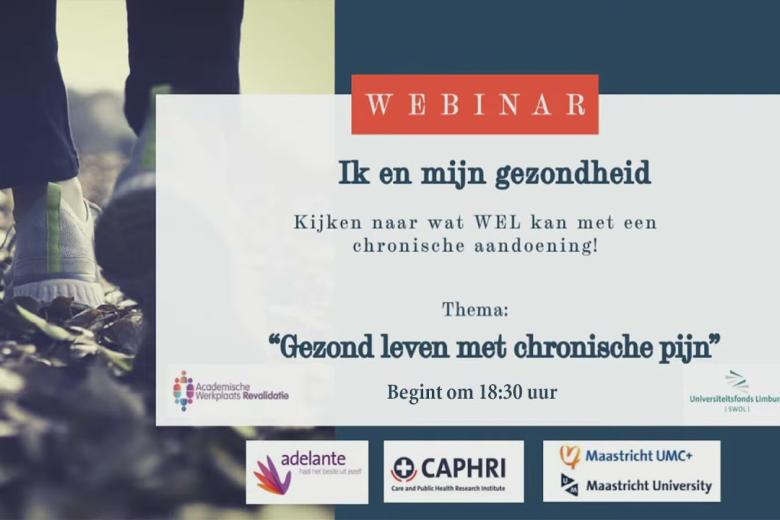“It’s about how people deal with their pain”
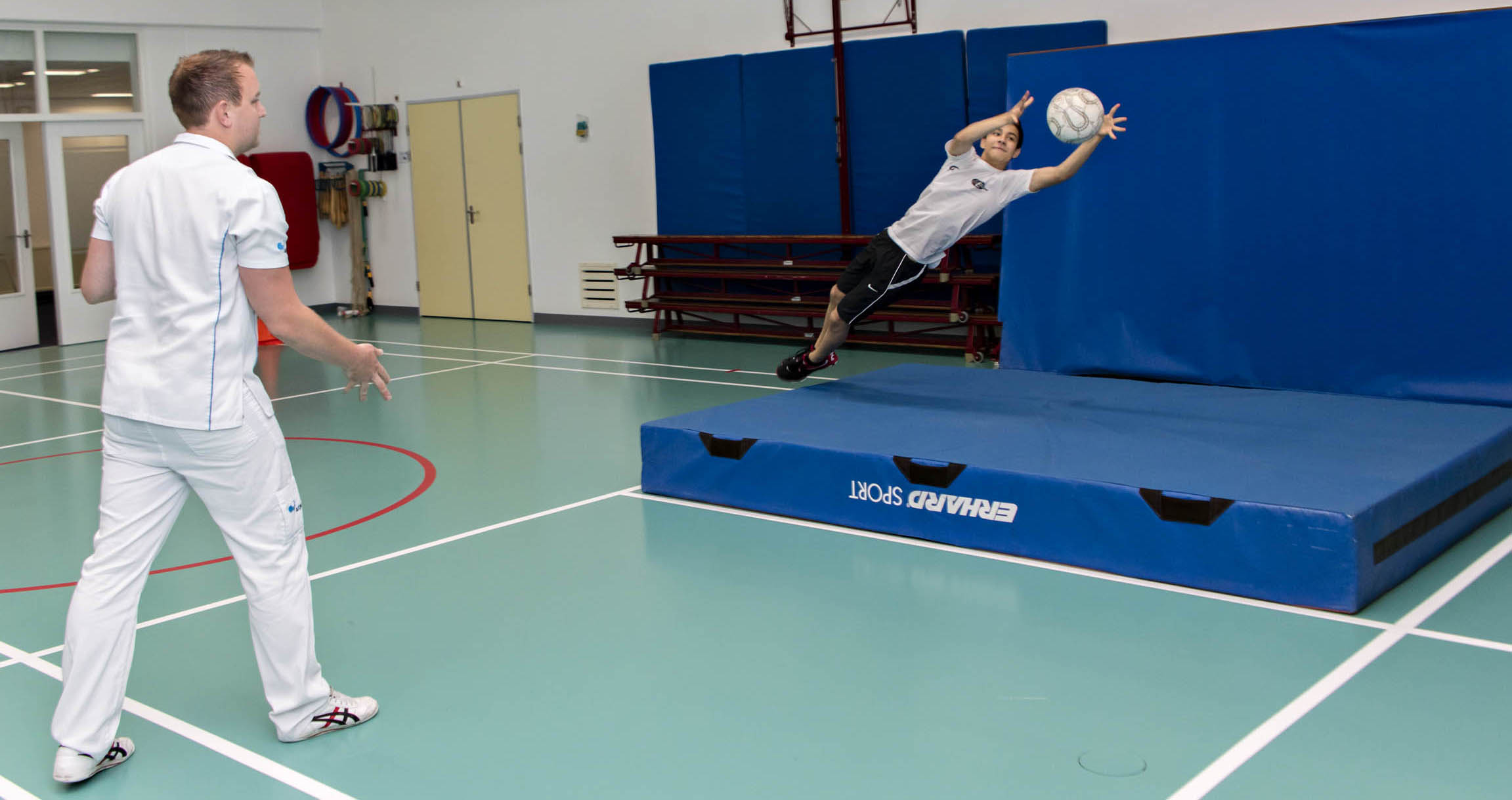
Researchers and practitioners in rehabilitation care working closely together
Chronic pain affects two million people in the Netherlands. Most of them suffer from chronic musculoskeletal pain, with back pain being the most common complaint. These are serious numbers, agrees Jeanine Verbunt. “And yet the impact of chronic pain is somewhat overlooked. Pain is often seen as a symptom rather than a disease. This may change now that the World Health Organisation has classified chronic pain as a disease.”
Jeanine Verbunt is a professor of Rehabilitation Medicine at CAPHRI and Adelante Zorggroep, a rehabilitation centre. She also works as a consultant in physical medicine and rehabilitation for Adelante at the Maastricht University Medical Centre+. She knows what chronic pain can do to people. “I’m glad that chronic pain is now recognized as a disease, although this could also have a negative effect. Pain is part of growing older. Not all pain can be cured. It’s about how people deal with their pain and how they live with it in such a way that they can continue to function as well as possible. If they can’t get to that point by themselves, they need good rehabilitation care.”
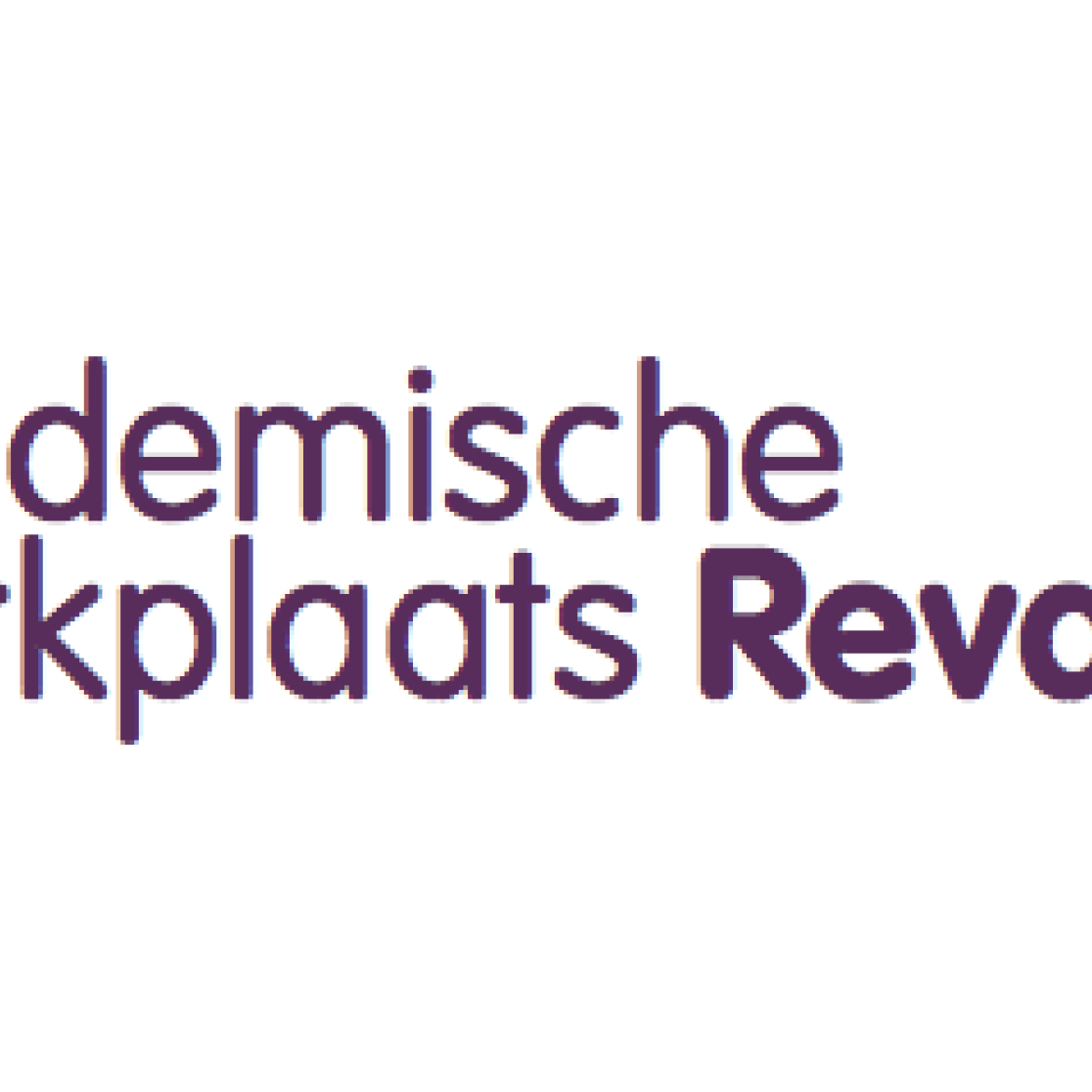
Expertise Centre Pain and Rehabilitation
(Part of the Living Lab Rehabilitation Limburg)
Website
Working together
CAPHRI’s research on rehabilitation care for chronic pain is characterized by researchers working closely together with health practitioners. For example, CAPHRI’s Living Lab Rehabilitation and Adelante have established four expertise centres together. One of the centres, the Expertise Centre Pain and Rehabilitation brings together research and teaching on this type of care. Jeanine Verbunt is the research coordinator of the centre. “In our research, we work together with regional parties, from hospitals to primary care providers, as well as with research groups within the academic hospital, such as the pain clinic, orthopaedics and rheumatology.”
Ivan Huijnen is affiliated with the expertise centre as a senior researcher in the Department of Rehabilitation Medicine at CAPHRI. He is also the manager of Center of expertise in Rehabilitation and Audiology, a knowledge centre that forms the Living Lab Rehabilitation together with CAPHRI’s Department of Rehabilitation Medicine. In addition, since January 2023 he is appointed as lector at Zuyd University of Applied Sciences within the Research Centre for Assistive Technology in Health Care. Chronic pain has a significant social impact, says Huijnen, and not just because it prevents people from fully functioning and participating in society. “Ninety per cent of chronic pain symptoms are medically unexplained and cannot be treated. Because of this, patients are not always satisfied with the care they receive and continue to look for other forms of treatment to relieve their pain. This results in very high costs.”

Contact
Prof.dr. Jeanine Verbunt
Coordinator Expertise Centre Pain and Rehabilitation
jeanine.verbunt@maastrichtuniversity.nl
Network Pain Rehabilitation Limburg
That is why researchers and health practitioners are joining forces to innovate treatments. They’re taking a matched-care approach, explains Jeanine Verbunt. “As we learn more, we develop new treatment plans. Our goal is to help people function as well as possible and achieve the goals they set for themselves. We’re not focused on relieving their pain as much as helping them to deal with it.” As good treatments involve good patient support, the expertise centre established the Network Pain Rehabilitation Limburg. “Patient support in rehabilitation care is quite fragmented and varied at the moment. The same goes for the information patients receive. We want to streamline the patient's support”, says Ivan Huijnen, project leader of the network. The Network Pain Rehabilitation Limburg was a pilot project in southeast Limburg. It involved various health professionals – allied health professionals, general practitioners, and GP assistants focused on mental health care – who worked working closely together. In the network the E-health application SanaCoach Pain Rehabilitation was used to support decision making of the health professional and self-management of the patient by making use of eLearning modules and diaries. The goal of the project was to create a unified vision of how to support and treat chronic pain patients in optimising their functioning despite pain. The organization of care was tailored based on the complexity of the pain complaints and the patient’s needs. In this project, based on classification tools health care professionals were supported in their decision making. The parties involved worked more closely together and when possible the care was provided closer to home, at a lower level in the health system and when needed the patient was referred to secondary care. In November 2022 Cynthia Lamper defended her PhD thesis (PhD student CAPHRI) entitled: "Network Pain Rehabilitation: an integrated interdisciplinary care approach".

Integral view on health
Based on the results of this CAPHRI PhD project, further initiative are started to further improve the organization of care. First, a multidisciplinary rehabilitation treatment in primary care will be implemented in the upcoming months. In this innovative rehabilitation treatment in primary care, the treatment is provided by professionals from different disciplines who work closely together. Based on an innovation rule, this care is in the pilot phase financed and therefore accessible for all patients matching the indication criteria for this treatment. From the living lab, the scientific evaluation will be performed by Kirsty Musch, a second PhD student involved. Another innovatieve initiative based on the results of the Network Pain Rehabilitation Limburg is the implementation of an advice consultation of a consultant in rehabilitation medicine. Based on the opinions of healthcare professionals in primary care and especially the general practitioners, this consultation was recommended to implement to support the general practitioner in the decision making. Patients with more complex complaints seen by the GP can be referred to this consultation to get advice which treatment is recommended based on the patient’s complexity of complaints and/or to give education from a biopsychosocial perspective. Jeanine Verbunt nods. “That’s why it is important to translate new insights in specialist rehabilitation care into primary care. Care will become more accessible and patients won’t have to visit multiple healthcare providers.” To prevent unnecessary visits, healthcare providers need to work from a broader perspective; an integral view on health. To be able to do that, healthcare professionals need to become more and more familiar with other disciplines and be able to work interdisciplinary. Also medical and paramedical health care professionals need to collaborate more intensively to provide this integral approach. Therefore, it is an important development that the new lectorate has recently started at the University of Applied Sciences. At these university, the future paramedics are trained and this integral view on health can be introduced during this training.
Involved research line
Involved Living Lab
Exposure in vivo
The expertise centre has also evaluated a treatment called “Exposure in Vivo”, which supports patients in regaining confidence in their ability to move so that they can resume the activities they had begun to avoid as a result of fear of pain or injury. The treatment teaches them that they can do more than they think, without making their pain worse. “This is a wonderful example of cooperation between the Department of Clinical Psychological Science, the research school EPP (Experimental Psychopathology) and the living lab rehabilitation”, says Jeanine Verbunt. The treatment focuses on the patient’s fear of pain or injury. The Department of Clinical Psychological Science provided the theoretical basis for the treatment, which the expertise centre in the living lab is evaluating for an increasing number of patient groups. If it proves to be beneficial, it will become a standard treatment. It is currently being given to adults with back pain, CANS (Complaints of the Arm, Neck and/or Shoulder), CRPS (Complex regional pain syndrome) and adolescents with chronic musculoskeletal pain. We are now studying the applicability of the concept for other pain problems with underlying diseases such as reumatoid artritis, cancer pain and pain in spinal cord injury. “The expertise centre can play a role in the implementation of new treatments, so that they can also be implemented in the rest of the Netherlands, by training health professionals in giving the treatments and integrating the interventions into regular healthcare education. The ultimate goal is to provide the right care in the right place.”
Text: Karin Burhenne
Translation: Maud Bovelander
This video shows an overview of the scientific research conducted within the Expertise Center for Pain and Rehabilitation
Research team
- Prof.dr. Jeanine Verbunt, Professor of Rehabilitation Medicine Maastricht University and Adelante Zorggroep, consultant in physical medicine and rehabilitation for Adelante at MUMC+
- Prof.dr. Rob Smeets, Professor of Rehabilitation Medicine, Department of Rehabilitation Medicine, Maastricht University
- Dr. Ivan Huijnen, senior researcher Department of Rehabilitation Medicine, Maastricht University and lector Appropriate Rehabilitation Care Zuyd University of Applied Sciences
- Dr. Albère Köke, senior researcher Department of Rehabilitation Medicine, Maastricht University and Coordinator Network Painrehabilitation Netherlands
- Dr. Marielle Goossens, associate professor, Department of Rehabilitation Medicine, Maastricht University
- Dr. Inge Timmers
- Marion de Mooij, research assistent, Department of Rehabilitation Medicine, Maastricht University
- Dr. Darcy Ummels, senior researcher, Department of Rehabilitation Medicine, Maastricht University
- Dr. Thijs van Meulenbroek, senior researcher Adelante Zorggroep
- Dr. Marlies den Hollander, psychologist and senior researcher Adelante Zorggroep
Our most important output for societal target groups
Our treatments have been evaluated by effectiveness studies. For evidence based treatments, we developed courses for health care professionals in order to share knowledge and facilitate implementation of treatments in other rehabilitation centers. In addition, we wrote handbooks and organized several webinars for health care professionals.
Handbooks
- Verbunt J, Swaan L, Schiphorst Preuper R, Schreurs K. Handboek pijnrevalidatie voor de eerste, tweede en derdelijnsgezondheidszorg. Bohn Staflue en van Loghum, Houten 2019
- Verbunt J, Smeets R. Graded exposure, een cognitief gedragsmatige aanpak. Bohn Staflue en van Loghum, Houten, 2016
Courses for rehabilitation professionals
Webinars
We organize webinars for health care professionals that work with patients with chronic pain:
- 2023: Advice consultation rehabilitation physician for chronic pain complaints
- 2021: New developments in pain rehabilitation
We organize webinars for patients with chronic pain (as a joined production with patient organization Pijnpatiënten naar één stem):
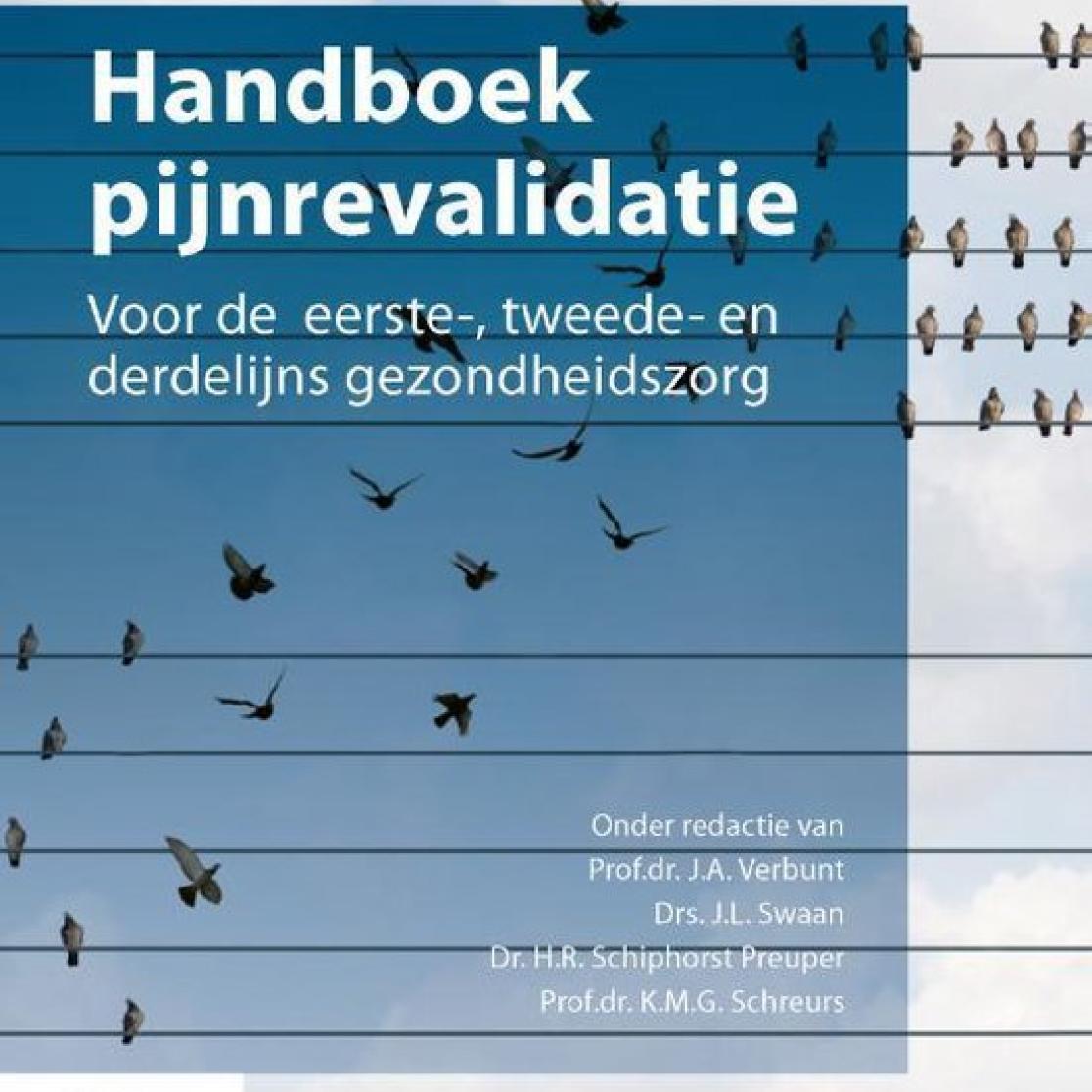
Patient webinar "Healthy living with chronic pain" (2022)
The patient webinar "Healthy living with chronic pain" focused mainly on people with chronic pain who are limited in their daily lives. Conversations were held with experts by experience, representatives of the patient association and healthcare providers with a focus on rehabilitation and chronic pain.
Watch the webinar (in Dutch)
Our most important scientific output
- Hartvigsen J, Hancock MJ, Kongsted A, Louw Q, Ferreira ML, Genevay S, Hoy D, Karppinen J, Pransky G, Sieper J, Smeets RJ, Underwood M; Lancet Low Back Pain Series Working Group. What low back pain is and why we need to pay attention. Lancet. 2018 Jun 9;391(10137):2356-2367.
- den Hollander M, Goossens M, de Jong J, Ruijgrok J, Oosterhof J, Onghena P, Smeets R, Vlaeyen JWS. Expose or protect? A randomized controlled trial of exposure in vivo vs pain-contingent treatment as usual in patients with complex regional pain syndrome type 1. Pain. 2016 Oct;157(10):2318-2329.
- Lamper C, Huijnen IPJ, Kroese MEAL, Köke AJ, Brouwer G, Ruwaard D, Verbunt JAMCF. Exploring the feasibility of a network of organizations for pain rehabilitation: What are the lessons learned? PLoS One. 2022 Sep 15;17(9):e0273030.
Award
In 2019, Marlies den Hollander won the VRA PHD award 2019 (best PhD thesis on rehabilitation medicine in the Netherlands) on her thesis on rehabilitation treatment for chronic pain ('Expose or protect? Fear of movement-related pain in patients with complex regional pain syndrome type 1).
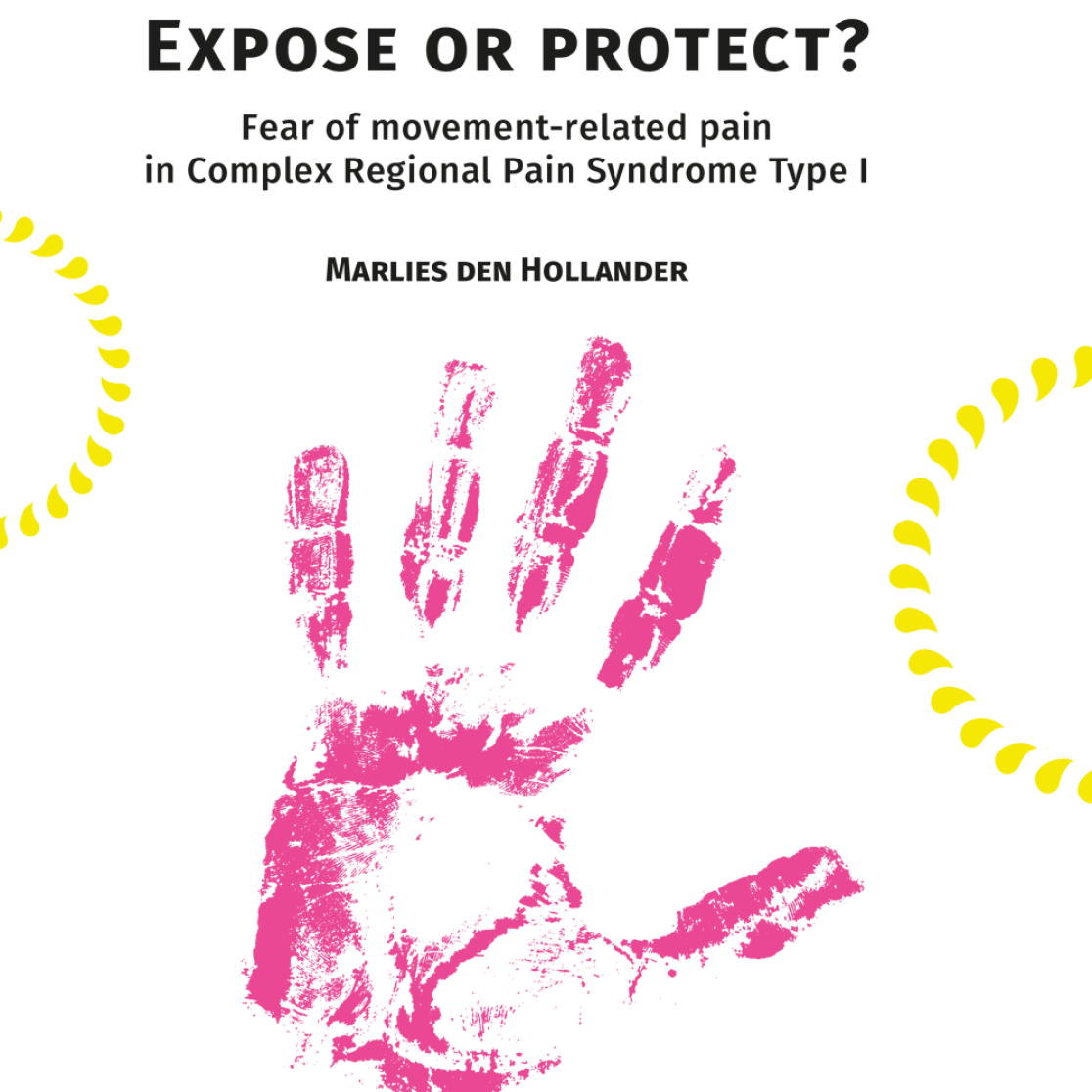
Our collaborating partners
National partners:
- Partners in the Living Lab Rehabilitation are three rehabilitation centers (Adelante Zorggroep, Revant revalidatie and Libra Revalidatie) and Zuyd University of Applied Sciences
- Specifically on the topic of pain rehabilitation, we collaborate in the Dutch Pain Rehabilitation Network with rehabilitation centers: Rijndam Revalidatie (Rotterdam), UMCG Groningen, Roessingh (Enschede)
- We have a close collaboration on the topic of pain rehabilitation research with the University of Groningen and the Universities of Applied sciences Rotterdam, Utrecht and Zuyd (Heerlen).
International partners:
- On the topic of chronic pain, we have joint PhD trajectories with various Belgium Universities and a Swedish University: Leuven University, Gent University, Hasselt University, Antwerp University and University of Gothenburg.
- We are an official partner in the following international scientific networks on pain research:
Pain, Action and INterference (PAIN): Key objectives of PAIN are (1) to consolidate and extend research collaborations, (2) to facilitate research opportunities by synergy of expertise and of resources, and (3) to create a platform for translational and clinical research, in which the knowledge from the lab is implemented into the daily lives of those living with chronic pain.
Pain in Motion: A multidisciplinary group of researchers and clinicians affiliated to different international institutions who combine forces to improve the understanding of biopsychosocial mechanisms of pain; and strive towards having a significant impact on health care for patients suffering from (persistent) pain.
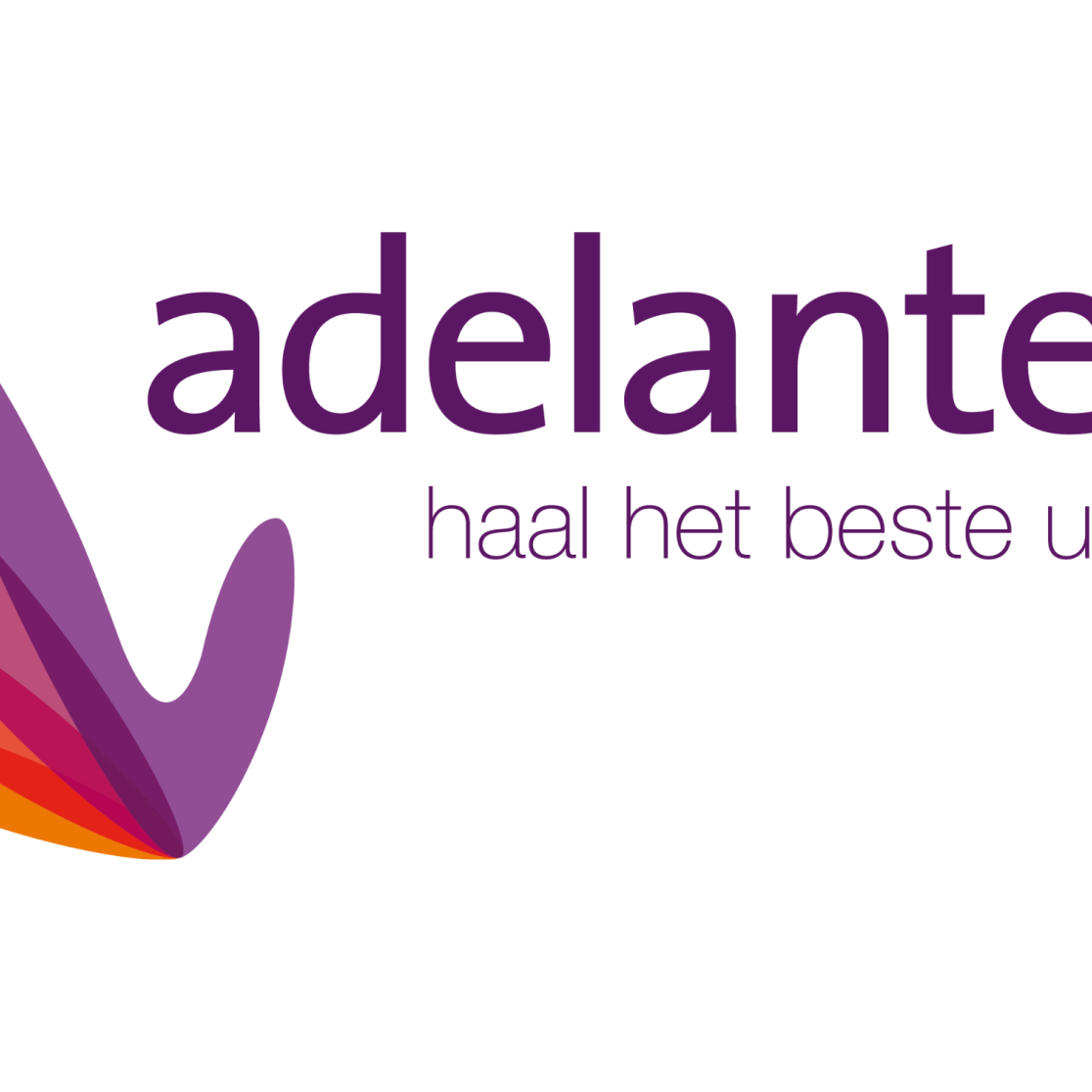
Our project in the media
Rehabilitation medicine: Daring to move despite pain
Pain for life? Limburg can provide a breakthrough
